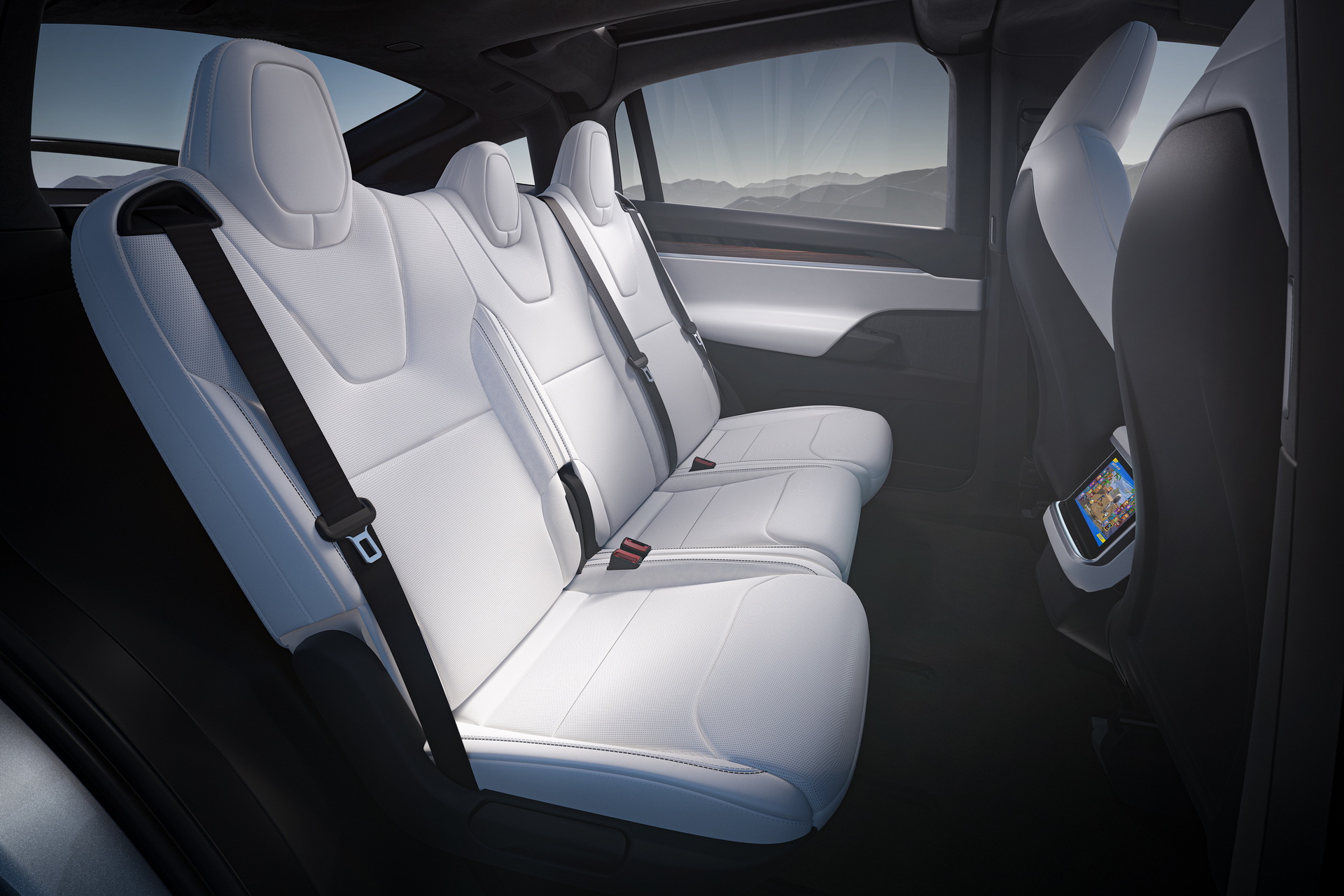Over 24,000 Tesla Model 3s ranging from the model year 2017 to 2022 are subject to a new recall. Each one will require a physical examination by a Tesla service center. At the root of the issue is a seat belt anchor that may not be correctly fastened. While Tesla is unaware of any injuries related to the condition, an improperly anchored seat belt could impair the component’s performance in the event of a crash.
Interestingly enough, Tesla says that this recall, which affects 24,064 Model 3s, has come about due to a servicing issue rather than a manufacturing one. “Servicing certain components in Model 3 vehicles requires disassembly of the second-row left seat belt buckle and center seat belt anchor, both of which are fastened with the same bolt. Both components may have been incorrectly reassembled after disassembly during a service action,” it said in the filing.
It also says that customers might be able to detect an issue if they notice the second-row left belt or anchor is loose when pulled up and away from the bench. In fact, Tesla reports that it was complaints from service technicians and customers that alerted it to the problem in the first place.
Read: Tesla Reportedly Under Criminal Investigation In U.S. For Its Self-Driving Claims
From August 15th through September 30th of this year it found 105 instances of incorrect reassembly of the anchor. Less than a month later, on October 19th, it decided to issue this recall despite not finding any other instances of the condition. Once again, it says that it’s unaware of any injuries, deaths, or crashes related to the loose seat belt and anchor.
Thankfully, the corrective action is simply to fasten the belt and anchor to correct specifications. In addition, Tesla has amended the service procedure that led to this condition with additional instructions to ensure that it’s not an issue in the future. One of those new requirements is for the service technician to confirm the belt and anchor is correctly reassembled.
Those who might have already fixed the problem can be reimbursed for associated costs. Most owners will likely get a prompt on their infotainment system alerting them to the recall.






